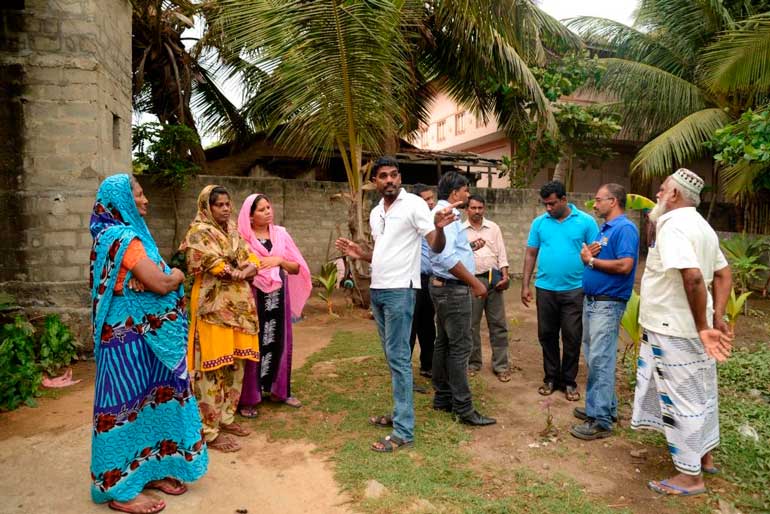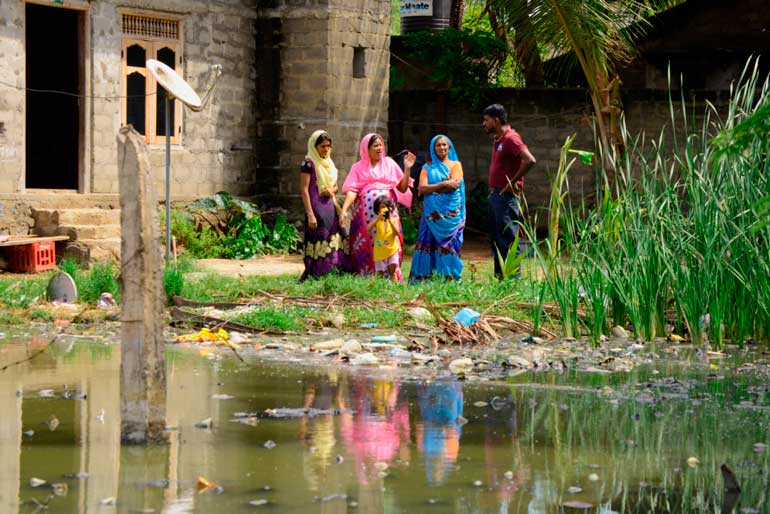Monday Feb 23, 2026
Monday Feb 23, 2026
Saturday, 3 October 2015 00:00 - - {{hitsCtrl.values.hits}}


In a bid to help communities improve groundwater conditions and increase their resilience to floods related threats, the United Nations Office for Project Services (UNOPS), in partnership with the Mannar District Secretariat and the Mannar Urban council, facilitated a series of community consultations. The result of the consultations has led to joint development of solutions for the problems faced in the district. This is of particular importance as the residents of Mannar face regular threats of flooding at peak rainy season. With the high tide levels reaching 0.75 metres, and with the height in some areas of the island, being less than 0.75 metres above mean sea level, the threat of flooding looms high.
The activities are part of a wider effort to upgrade the drainage network and the inland pond systems to contribute to better flood control and increased groundwater recharge. The interventions are set to benefit more than 16,000 people living in Mannar Island. UNOPS is also working with the authorities to demarcate and identify boundary lines of the ponds as those are often unclear and no proper documentation from the past is available. These activities are carried out by UNOPS in collaboration with the local authorities, community based organisations and the local residents. This participatory approach has allowed the team to help resolve some of the land use issues and reach settlements with most of those who have encroached on the pond areas. Work is now in progress to renovate and restore some of the main ponds in the island which will improve the surface water management and groundwater recharge capacity.
This intervention is indispensable as a key challenge faced by the authorities in managing the ponds in the Mannar township area is the illegal encroachment and limited land for residential purposes. As Mannar Island has inadequate groundwater resources, ponds are essential for groundwater recharge. If the ponds are encroached, it will limit the availability of clean groundwater for the residents. Small ponds being filled with soil to create construction plots affect the hydrology and run-off characteristics of flood waters as the space for water is further reduced.
This set of activities is being implemented with financial assistance provided through the European Union Support to District Development Program (EU-SDDP), with a total financial envelope of EUR 60 million. The program aims to support the Government of Sri Lanka’s thrust for economic and social development in seven conflict-affected districts covering half a million people.
In 2008, also with the funding of the EU, UNOPS had prepared a hydro-geographical map of the Mannar Island to identify key catchment areas and the mitigation steps to protect the communities. The project also implemented some of the remedial activities proposed through the study. The current interventions are a continuation of this effort and confirm the close cooperation between UNOPS, the EU, the local authorities and the community in Mannar.